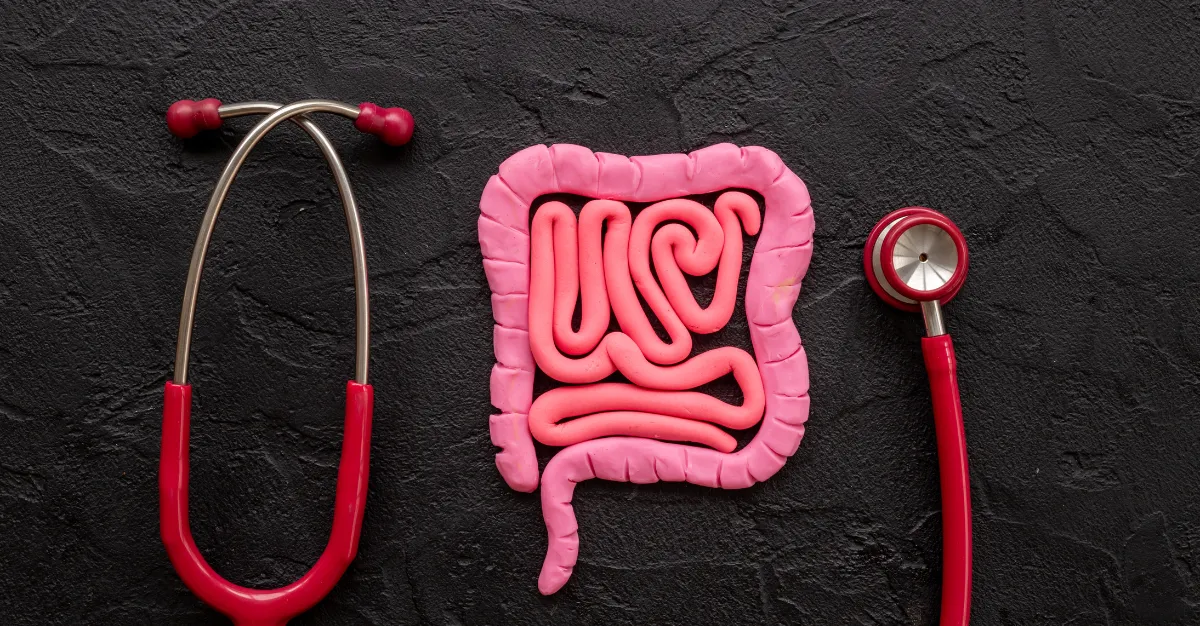Stay informed with the latest insights and resources
Our team of experts shares valuable tips, success stories, and practical advice to support you on your wellness journey.


From Chronic Symptoms to Clearer Days: My Approach to Healing Leaky Gut
Many people experience persistent bloating, fatigue, brain fog, and food sensitivities without realizing these symptoms could stem from an underlying gut issue. They may try different diets, medications, or lifestyle changes but continue to feel unwell. Often, they are told their symptoms are due to stress, aging, or simply bad luck. But what if there was a deeper root cause?
Leaky gut, or increased intestinal permeability, is an often-overlooked condition where the tight junctions in the gut lining become compromised. This allows undigested food particles, toxins, and pathogens to enter the bloodstream, triggering inflammation and immune dysfunction. Research increasingly validates the connection between leaky gut and chronic health issues, including autoimmune diseases, metabolic disorders, and neurological dysfunctions.
Symptoms of Leaky Gut
The signs of leaky gut often masquerade as common ailments, making it easy to overlook. These include:
● Digestive Issues: Bloating, gas, diarrhea, constipation, and acid reflux
● Chronic Fatigue: Persistent low energy, despite adequate sleep
● Brain Fog & Mood Disorders: Poor concentration, anxiety, and depression
● Food Sensitivities & Allergies: New or worsening intolerances to dairy, gluten, or other foods
● Joint Pain & Muscle Aches: Inflammation-related discomfort
● Skin Problems: Eczema, psoriasis, rosacea, or persistent acne
● Autoimmune Conditions: Hashimoto’s, rheumatoid arthritis, lupus, and others linked to gut dysfunction
● Nutritional Deficiencies: Low levels of iron, B vitamins, magnesium, and zinc due to impaired absorption
What Causes Leaky Gut?
A variety of factors contribute to increased intestinal permeability, including:
Poor Diet: A diet high in processed foods, refined sugars, and unhealthy fats damage the gut lining over time. Gluten, for example, has been shown to trigger zonulin release, which increases gut permeability. Food additives, preservatives, and artificial sweeteners can also disrupt gut flora, leading to an imbalanced microbiome that weakens intestinal integrity. Studies indicate that the standard Western diet, rich in ultra-processed foods and low in fiber, plays a major role in gut barrier dysfunction.
Chronic Stress: Prolonged stress leads to elevated cortisol levels, which not only weaken the immune system but also reduce the production of protective mucus in the gut. This makes the gut lining more vulnerable to damage and inflammation. Stress also negatively impacts digestion, leading to incomplete breakdown of food, further aggravating gut health. Research has shown that stress-induced gut permeability plays a role in inflammatory and autoimmune conditions.
Dysbiosis (Imbalanced Gut Bacteria): A healthy gut contains a diverse community of beneficial bacteria that help regulate the gut barrier. However, factors such as antibiotic overuse, poor diet, and infections can lead to an overgrowth of harmful bacteria or yeast, like Candida. This imbalance creates inflammation and increases permeability, allowing harmful substances to pass through the gut lining into the bloodstream. Emerging research suggests that an imbalance in gut microbiota can influence systemic inflammation and contribute to chronic diseases.
Environmental Toxins: Exposure to pesticides, heavy metals, and endocrine-disrupting chemicals from food, water, and household products can contribute to inflammation and gut permeability. Glyphosate, the active ingredient in many herbicides, has been linked to gut barrier dysfunction by disrupting the gut microbiome and impairing tight junction proteins. Reducing toxin exposure through organic food choices and clean household products can significantly support gut health.
Non-Steroidal Anti-Inflammatory Drugs (NSAIDs): Frequent use of pain relievers like ibuprofen and aspirin damages the gut lining by inhibiting enzymes that help maintain intestinal integrity. Long-term use has been associated with increased permeability and gut inflammation, making it a common but often overlooked cause of leaky gut. Studies indicate that NSAID use is a significant contributor to gastrointestinal inflammation and damage.
Intestinal Infections: Bacterial, viral, or parasitic infections can directly damage the gut lining. Conditions such as SIBO (Small Intestinal Bacterial Overgrowth) and H. pylori infections alter the gut environment, weakening its natural defenses and making it more susceptible to permeability issues. Addressing these infections with targeted antimicrobial therapy and gut-supportive nutrients can help restore balance.
Food Sensitivities: Consistently consuming foods that trigger an immune response—such as gluten, dairy, soy, and processed seed oils—can lead to chronic low-grade inflammation in the gut. Over time, this inflammation erodes the gut lining, exacerbating leaky gut and contributing to systemic symptoms. Identifying and eliminating trigger foods can be a crucial step in healing.
Functional Tests for Identifying Leaky Gut
Conventional medicine lacks direct tests for leaky gut, but functional medicine offers several diagnostic tools:
● Zonulin Test: Measures levels of zonulin, a protein regulating tight junctions. Elevated levels suggest increased permeability.
● Lactulose-Mannitol Test: Assesses how well the intestines prevent sugar molecules from passing into the bloodstream.
● Comprehensive Stool Analysis: Identifies markers of gut inflammation, dysbiosis, and potential infections.
● Food Sensitivity Panels: Tests for immune reactions to common trigger foods.
● LPS (Lipopolysaccharides) Test: Detects endotoxins that indicate bacterial translocation from the gut into the bloodstream.
The Mutli-Faceted Approach For Healing Leaky Gut
Healing the gut requires a multi-faceted approach addressing diet, lifestyle, and supplementation. The 5R Protocol is a foundational strategy:
Remove: Eliminate inflammatory foods (gluten, dairy, sugar, processed foods) and potential infections (SIBO, Candida, parasites).
Replace: Support digestion with stomach acid (HCl), digestive enzymes, and bile acids.
Reinoculate: Restore healthy gut flora with probiotics and prebiotics.
Repair: Use gut-healing nutrients like L-glutamine, collagen, zinc carnosine, and aloe vera.
Rebalance: Address stress, sleep, and lifestyle factors that impact gut health.
If left unchecked, leaky gut can lead to more serious health concerns. Understanding leaky gut isn’t just about treating symptoms, it’s about restoring systemic health. By addressing the root causes and implementing personalized protocols, we can help individuals reclaim their health and vitality. If you are struggling with any of the symptoms mentioned, schedule a consultation and let’s get you back to feeling your best!
References
Camilleri M. Leaky gut: mechanisms, measurement and clinical implications in humans. Gut. 2019 Aug;68(8):1516-1526. doi: 10.1136/gutjnl-2019-318427. Epub 2019 May 10. PMID: 31076401; PMCID: PMC6790068. https://pubmed.ncbi.nlm.nih.gov/31076401/
Hasan N, Yang H. Factors affecting the composition of the gut microbiota, and its modulation. PeerJ. 2019 Aug 16;7:e7502. doi: 10.7717/peerj.7502. PMID: 31440436; PMCID: PMC6699480. https://pmc.ncbi.nlm.nih.gov/articles/PMC6699480/
Odenwald MA, Turner JR. Intestinal permeability defects: is it time to treat? Clin Gastroenterol Hepatol. 2013 Sep;11(9):1075-83. doi: 10.1016/j.cgh.2013.07.001. Epub 2013 Jul 12. PMID: 23851019; PMCID: PMC3758766. https://pubmed.ncbi.nlm.nih.gov/23851019/
Fasano A. Leaky gut and autoimmune diseases. Clin Rev Allergy Immunol. 2012 Feb;42(1):71-8. doi: 10.1007/s12016-011-8291-x. PMID: 22109896.
Bischoff SC, Barbara G, Buurman W, Ockhuizen T, Schulzke JD, Serino M, Tilg H, Watson A, Wells JM. Intestinal permeability--a new target for disease prevention and therapy. BMC Gastroenterol. 2014 Nov 18;14:189. doi: 10.1186/s12876-014-0189-7. PMID: 25407511; PMCID: PMC4253991.
Frequently Asked Questions
What is Functional Medicine?
Functional medicine is a personalized, patient-centered approach to healthcare that focuses on identifying and addressing the root causes of illness or imbalance in the body. It considers the complex interactions between genetics, environment, and lifestyle factors to optimize health and prevent disease.
How is Functional Medicine Different from Conventional Medicine?
Unlike conventional medicine, which often treats symptoms with medications or surgeries, functional medicine seeks to understand and address the underlying factors contributing to health issues. It emphasizes a holistic approach, aiming to promote wellness rather than just managing disease.
What Can I Expect During a Functional Medicine Consultation?
During a functional medicine consultation, you can expect a comprehensive assessment of your health history, symptoms, lifestyle factors, and environmental influences. Your practitioner will work with you to develop a personalized wellness plan focused on addressing the root causes of your health concerns.
What Conditions Can Functional Medicine Address?
Functional medicine can address a wide range of acute and chronic health conditions, including digestive disorders, hormonal imbalances, autoimmune diseases, metabolic issues, chronic fatigue, and more. It's particularly effective for conditions with complex underlying causes.
What Treatment Modalities Does Functional Medicine Use?
Functional medicine incorporates a variety of treatment modalities, including nutritional therapy, lifestyle modifications, stress management techniques, targeted supplementation, detoxification protocols, and mind-body therapies. The approach is highly individualized based on each patient's unique needs.
How Long Does it Take to See Results with Functional Medicine?
The timeline for seeing results with functional medicine varies depending on the complexity of your health issues, your adherence to the treatment plan, and other factors. While some patients experience improvements in symptoms relatively quickly, achieving long-term wellness often requires ongoing commitment and patience.

